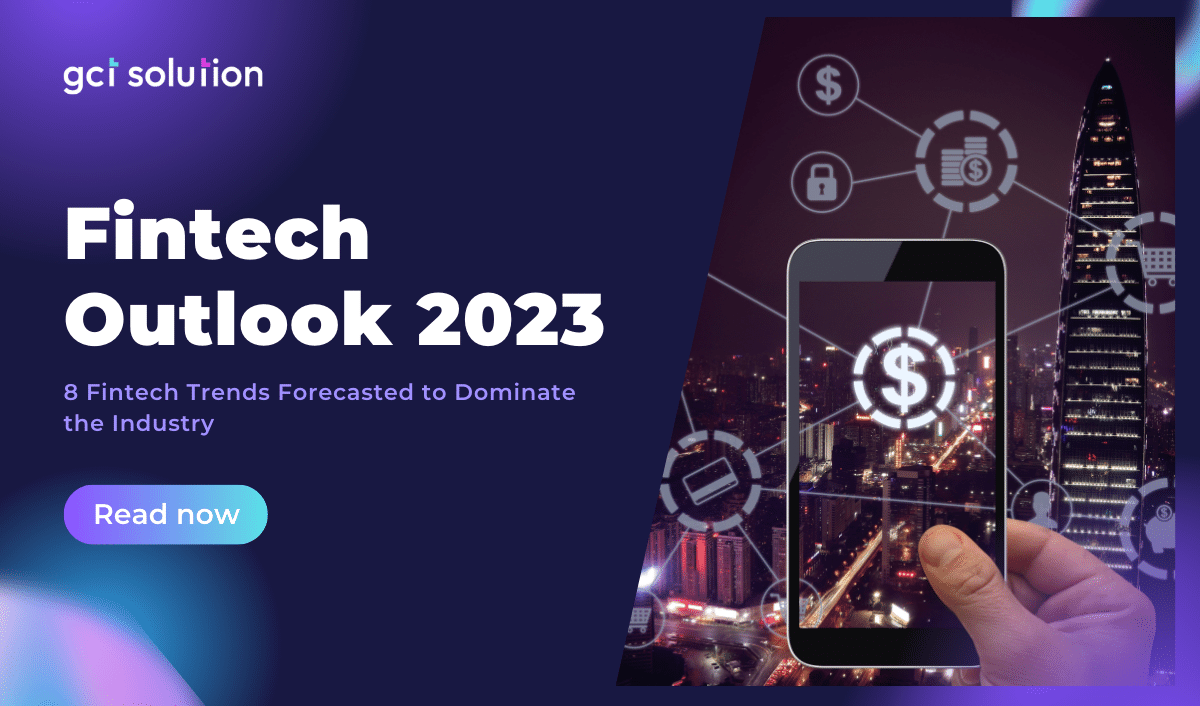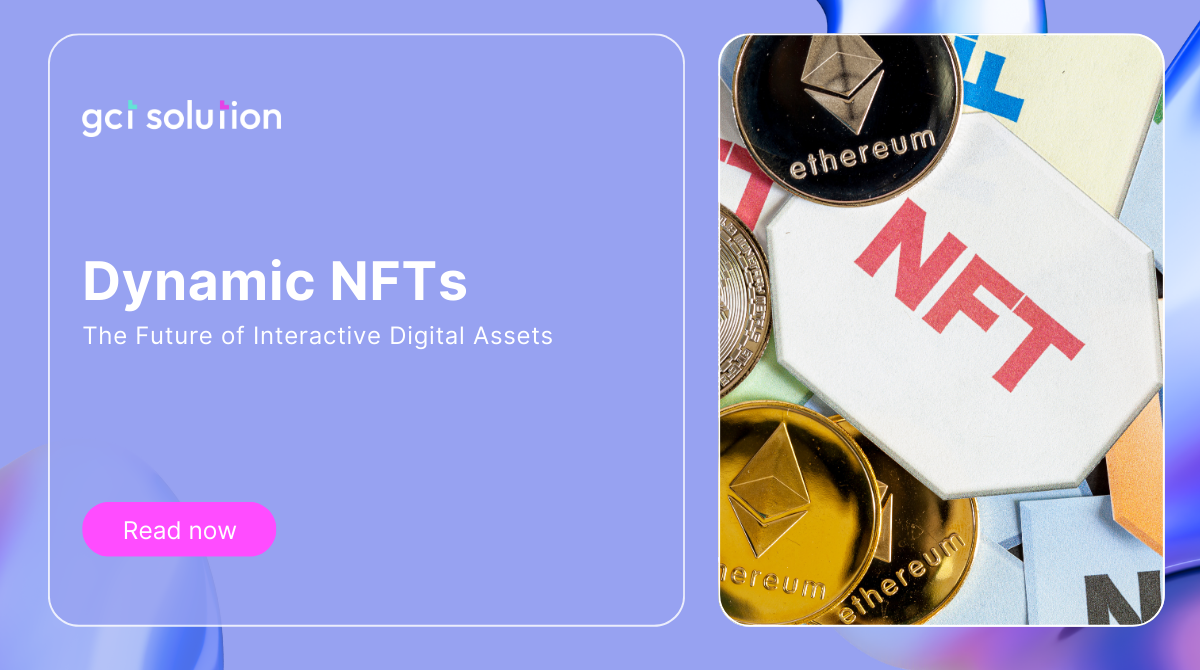Fintech Outlook 2023: 8 Fintech Trends Forecasted to Dominate the Industry
As 2023 becomes the turning point year for technology, fintech is gaining traction like never before. Indeed, the financial technology (fintech) industry has been rapidly evolving in recent years, revolutionizing the way we manage our finances and disrupting traditional financial services. As we step into 2023, it is essential to take a closer look at the emerging trends that are set to dominate the fintech landscape. In this blog post, we will explore eight key trends forecasted by industry experts and professionals that will shape the fintech industry in 2023.
1. Rise of Open Banking and API Integration:
Open Banking, a concept that promotes data sharing between banks and authorized third-party providers, is gaining momentum worldwide. In 2023, we can expect a significant expansion of Open Banking initiatives, leading to increased collaboration between traditional banks and fintech startups. According to a report by Juniper Research, Open Banking platform revenues are expected to reach $43 billion by 2026, a fivefold increase from 2021. This trend will enable customers to access a wider range of financial services, including personalized financial advice, and foster innovation in the sector.
Real-world Case: UK-based neobank Monzo has embraced Open Banking by partnering with various fintech firms to provide additional services to its customers. This includes account aggregation, credit scoring, and mortgage applications, enhancing the overall banking experience.

2. Adoption of Artificial Intelligence (AI) and Machine Learning (ML):
AI and ML technologies have already made a significant impact on the fintech industry, and their influence will continue to grow in 2023. These technologies can analyze vast amounts of data, enhance fraud detection and prevention systems, automate processes, and provide personalized customer experiences. For example, the rising of AI solutions such as ChatGPT, Bing, and Bard are going mainstream in 2023 and are forecasted to skyrocket in the next few years. According to a study by Accenture, AI in banking is estimated to save costs worth $447 billion by 2023.
Real-world Case: PayPal's acquisition of the AI-powered fraud detection company, Simility, demonstrates the growing importance of AI in combating fraudulent activities in the fintech space.
3. Expansion of Digital Payments:
The ongoing shift from cash to digital payments will accelerate in 2023, driven by factors such as convenience, security, and the proliferation of smartphones. Mobile wallets, contactless payments, and peer-to-peer payment apps will continue to gain traction, transforming the way we transact. According to Statista, global mobile payment transaction values are projected to surpass $4.5 trillion in 2023.
Real-world Case: In China, mobile payment platforms like Alipay and WeChat Pay have become an integral part of everyday life, allowing users to make payments for a wide range of services and products.

4. Growth of Cryptocurrency and Blockchain Technology:
Cryptocurrencies, such as Bitcoin and Ethereum, have captured the attention of investors and financial institutions worldwide. In 2023, we can expect increased adoption of cryptocurrencies and blockchain technology within the fintech industry. According to a report by MarketsandMarkets, the global blockchain market is expected to reach $39.7 billion by 2025, with financial services being the largest adopter of this technology.
Real-world Case: PayPal's decision to enable cryptocurrency transactions on its platform and the growing popularity of decentralized finance (DeFi) projects demonstrate the rising acceptance of cryptocurrencies and blockchain technology.

5. Expansion of RegTech and Compliance Solutions:
As the fintech industry continues to grow, so does the need for regulatory technology (RegTech) and compliance solutions. These tools help financial institutions streamline regulatory processes, ensure compliance, and combat financial crimes. The global RegTech market is forecasted to reach $16.8 billion by 2025, according to Grand View Research.
Real-world Case: Companies like ComplyAdvantage and IdentityMind provide AI-driven solutions that enable businesses to comply with anti-money laundering (AML) and know-your-customer (KYC) regulations more effectively.
6. The Emergence of Embedded Finance:
Embedded finance, the integration of financial services into non-financial platforms, is set to disrupt traditional banking models in 2023. Through partnerships and collaborations, fintech companies will embed financial products and services into various industries, such as e-commerce, travel, and healthcare. According to a report by Deloitte, embedded finance has the potential to capture a $7.2 trillion opportunity by 2030.
Real-world Case: Shopify, a leading e-commerce platform, has expanded its services to include Shopify Capital, providing loans to its merchants based on their sales data, thereby enabling embedded finance.

7. Focus on Financial Inclusion:
Fintech has the potential to bridge the gap in financial inclusion by providing access to financial services for the unbanked and underbanked populations. In 2023, we can expect a greater emphasis on financial inclusion initiatives, leveraging fintech innovations to reach underserved communities. The World Bank estimates that by 2022, 1.7 billion adults globally will remain unbanked, presenting a significant market opportunity for fintech companies.
Real-world Case: India's Jan Dhan Yojana, a government-led initiative, has leveraged fintech to provide financial services to millions of unbanked individuals, enabling them to access banking, insurance, and other financial products.
8. Enhancing Cybersecurity Measures:
As fintech solutions become more interconnected and data-driven, the importance of robust cybersecurity measures cannot be overstated. In 2023, we can expect increased investments in cybersecurity technologies to safeguard sensitive financial information. According to a report by Cybersecurity Ventures, global spending on cybersecurity products and services is expected to exceed $1 trillion cumulatively from 2021 to 2025.
Real-world Case: The emergence of blockchain-based cybersecurity solutions, such as Chainlink and Unbound Tech, showcases the industry's efforts to enhance security in the fintech space.

Final Thoughts:
The fintech industry is poised for significant growth and innovation in 2023. The eight trends outlined in this blog post highlight the key areas that will shape the future of fintech. From the rise of Open Banking and AI-driven technologies to the growth of digital payments and blockchain adoption, the industry is set to transform the way we manage our finances. Furthermore, the focus on financial inclusion, embedded finance, compliance solutions, and cybersecurity measures will contribute to a more accessible, secure, and inclusive financial ecosystem. As we navigate through this rapidly evolving landscape, it is crucial for businesses and consumers to embrace these trends and leverage the opportunities they present.
If you are seeking a seasoned IT provider, GCT Solution is the ideal choice. With 3 years of expertise, we specialize in Mobile App , Web App, System Development, Blockchain Development and Testing Services. Our 100+ skilled IT consultants and developers can handle projects of any size. Having successfully delivered over 50+ solutions to clients worldwide, we are dedicated to supporting your goals. Reach out to us for a detailed discussion, confident that GCT Solution is poised to meet all your IT needs with tailored, efficient solutions.












